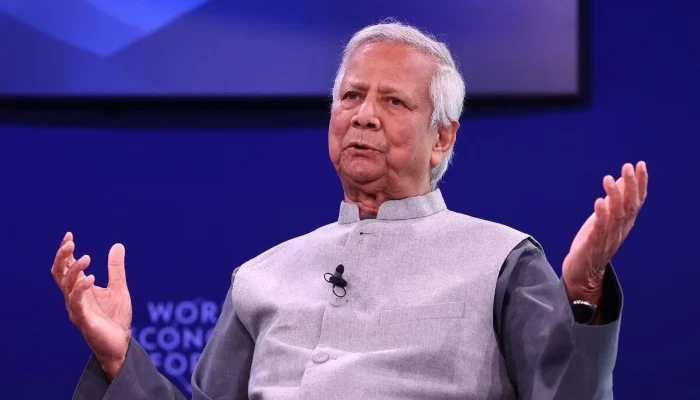Muhammad Yunus, Nobel laureate and interim head of Bangladesh’s government, has criticized the economic growth achieved under ousted Prime Minister Sheikh Hasina. Yunus, 84, called the growth “fake” and accused the global community of ignoring allegations of corruption during her tenure.
Hasina, who ruled Bangladesh from 2009 until August 2024, fled to India following weeks of violent protests. She faces allegations of crimes against humanity, genocide, corruption, and money laundering. Dhaka has requested her extradition, but India has not yet responded.
While Hasina was credited with revitalizing Bangladesh’s garments industry and accelerating GDP growth to nearly 8% in 2017/18, Yunus questioned the sustainability and inclusiveness of this progress. Speaking at the World Economic Forum, Yunus accused Hasina of presenting misleading growth statistics to the global community.
Yunus Pushes for Inclusive Growth
Yunus emphasized the need for inclusive economic policies that reduce wealth inequality and improve the lives of the poorest citizens. Known as the “banker to the poor,” Yunus won the Nobel Peace Prize in 2006 for his work with Grameen Bank, which provided microloans to rural communities.
“For me, growth rates don’t matter as much as the quality of life for those at the bottom,” Yunus said. He criticized the concentration of wealth under Hasina’s leadership, claiming it did little to benefit marginalized populations. Yunus has promised to hold free elections by late 2025 or early 2026 but said he has no interest in running for office.
The interim government, led by Yunus, has gained support from student-led protests that grew into a nationwide movement. Protesters accused Hasina’s government of suppressing dissent and using excessive force, allegations her administration has denied.
Indian Mobile Devices Pose Cybersecurity Threat to Pakistan
Strained Bangladesh-India Relations
Relations between Bangladesh and India have deteriorated since Hasina sought refuge in New Delhi. Yunus has demanded her extradition so she can face trial for alleged crimes, including actions against protesters and political opponents.
Yunus expressed disappointment over the strained ties, describing India as a historically close partner. “Bangladesh-India relations should be the strongest possible,” he said, emphasizing the interconnected geography and shared history of the two nations.
He also referred to China as a reliable ally during this period of transition, highlighting Beijing’s long-term friendship with Bangladesh. However, Yunus reiterated the importance of restoring strong relations with India, saying the current tensions hurt him personally.
Follow Day News on Google News, Instagram, YouTube, Facebook, Whats App, and TikTok for latest updates
